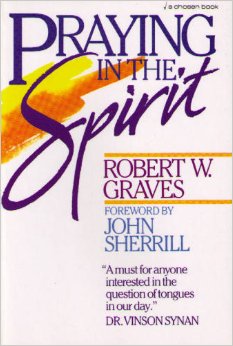Praying in the Spirit: Better Than I Was, Not Better Than You Are
The fifth chapter of the Praying in the Spirit Series.

Robert W. Graves wrote Praying in the Spirit (Chosen Books) in 1987, when it received great reviews from a number of Pentecostal/charismatic scholars and leaders including John Sherrill, Dr. Vinson Synan, Dr. Gordon Fee, Dr. William Menzies, Dr. Howard Ervin, Dr. Walter Martin, and Dr. Stanley Horton. It is the great privilege of the Pneuma Review to republish it here.
“You Pentecostals think you’re better than anyone else, don’t you?” The question startled the young Florida pastor attending his first ministerial association meeting. He stammered briefly and then with wisdom replied, “No, not at all. I am simply better than I was before.” The question of spiritual pride has found its way into the minds of many non-charismatic Christians and, unfortunately, has become a great stumbling block.
“One characteristic of the modem tongues-movement,” writes Ronald Baxter, “is that of spiritual pride. The impression often given is, ‘I’ve got it and you haven’t. I’m sorry for you!’” (pp. 22-23). The first chapter of John F. MacArthur, Jr.’s, The Charismatics is titled “Are You One of the Have-Nots?” And according to Michael Griffiths, Pentecostals and charismatics “claim a monopoly of the Holy Spirit’s operation” (Three Men, p. 25). Merrill Unger, longtime critic of Pentecostalism, writes that Pentecostals believe the outsiders are “ordinary believers” and they are the “Spirit-baptized super-saints” (Baptism, p.36).
If Pentecostals and charismatics have done nothing more, it seems that they have convinced some non-Pentecostals that they believe themselves to be superior because they have spoken in tongues. Indeed, spiritual elitism, counting one’s own beliefs as sole “correct” theology, could be a temptation for all Christians, but especially those within revivals or renewals. The nature of renewal demands that some portion of the Church be moving in a different stream than the remainder, and the tendency to see oneself in a different light than one sees the others (no matter which group you are in) is a natural byproduct.
When I pray in tongues it is a sign of my own inadequacy in the sense that my intelligible powers are insufficient to express my heart’s praise to God. After all, how can I expect my mind to express the joys and cries of my spirit?
Category: Spirit, Winter 2000


